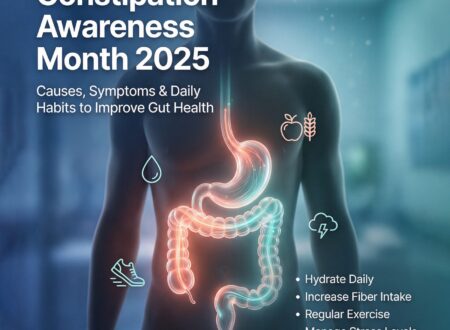INTRODUCTION:
As men approach the milestone of 40, it becomes increasingly important to shift the focus from just physical appearance or fitness goals to comprehensive health and well-being. Men’s health is often overlooked due to busy lifestyles, societal expectations of toughness, or simple neglect. However, turning 40 is a pivotal time—a natural checkpoint that calls for a more mindful and proactive approach to health, including a thorough men’s health check-up. Addressing key health aspects now can prevent many serious conditions down the road and improve quality of life in the long run.
One of the most important things every man should do before turning 40 is to undergo a complete health check-up. This includes monitoring blood pressure, cholesterol levels, fasting blood sugar, liver and kidney function, and BMI. These parameters may seem routine but are powerful indicators of underlying health issues. Conditions like hypertension, diabetes, and high cholesterol often develop silently and show no symptoms in their early stages. Regular screenings help in catching these silent threats early, when they are still manageable or reversible with lifestyle changes or minimal medication. Men with a family history of heart disease, diabetes, or stroke should be especially cautious. A baseline ECG, treadmill test, and even a cardiac CT scan may be advised by the physician, depending on the individual’s risk factors.
WHAT ARE THE BENEFITS OF REGULAR HEALTH CHECK-UPS IN MEN BELOW 40?
Routine health tests for men offer several significant men’s health check-up benefits, which include:
- Early Detection and Treatment: Many serious conditions, such as heart disease, diabetes, and certain cancers, may not show symptoms initially.
- Regular preventive care for men allows for early detection.
- Prevention: Health tests for men can identify risk factors for various diseases. This empowers you to make proactive lifestyle changes or get preventive treatments.
- Improved Mental Health: Men’s health check-up benefits extend to mental well-being too. Screenings can catch issues like depression and anxiety early.
- Better Quality of Life: Staying on top of your health as a man helps you feel your best physically and mentally. This leads to a better quality of life and productivity. Preventive care for men is an investment in your overall well-being.
WHAT DISEASES ARE MEN BELOW 40 ARE AT RISK FOR?
Men face higher risks for several serious diseases compared to women. Here are some of the top health concerns for men:
- Cardiovascular disease
- Type 2 diabetes
- Prostate issues
- Mental health disorders
WHAT CHECK-UPS SHOULD MEN GET AT 40?
As per the World Health Organization (WHO) and Indian health data, many lifestyle diseases affecting Indian men—such as diabetes, hypertension, heart disease, and mental health disorders—begin well before the age of 40. This makes it crucial for every Indian man to undergo certain health checks and adopt preventive measures before crossing this important age threshold.
- PHYSICAL EXAMINATIONS – All men should get physical examinations regularly before turning 40, in order to maintain their overall health.
- CARDIOVASCULAR AND METABOLIC HEALTH – India is often called the “diabetes capital of the world,” and Indians have a genetically higher risk for type 2 diabetes and heart disease at younger ages compared to their Western counterparts. Sedentary lifestyles, irregular eating habits, and high consumption of processed foods further worsen these risks. Every man approaching 40 should routinely check:
- Blood pressure
- Blood sugar (fasting and HbA1c levels, considered as a growing epidemic)
- Cholesterol profile (lipid profile)
- Body Mass Index (BMI) and waist circumference
- CBC Test to check red and white blood cells
These simple tests can detect early signs of metabolic syndrome—a dangerous combination of obesity, hypertension, and diabetes—which is becoming increasingly common in urban India.
https://medlineplus.gov/ency/article/007465.htm
- CHOLESTEROL CHECK – Cholesterol is one of the key markers of heart health. Elevated cholesterol levels, especially LDL (the “bad” cholesterol), can lead to the build-up of fatty plaques in the arteries, eventually causing blockages, heart attacks, or strokes. Unfortunately, high cholesterol often shows no symptoms until severe complications arise.
What to check:
- Total cholesterol
- LDL cholesterol
- HDL cholesterol (the “good” cholesterol)
- Triglycerides
How often:
- Every 3-5 years starting in the 20s if normal; more frequent if risk factors exist.
- MENTAL HEALTH AND EMOTIONAL WELL-BEING – Mental health remains one of the most neglected aspects of men’s health in India, primarily due to societal stigma. Cultural expectations often discourage Indian men from discussing emotional stress, anxiety, or depression. The pressures of balancing work demands, family responsibilities, and financial burdens can silently take a toll.
Before turning 40, every Indian man should:
- Assess stress levels and emotional health.
- Seek counseling or therapy if experiencing persistent anxiety, low mood, or burnout.
- Practice mindfulness techniques such as yoga, meditation, or breathing exercises, which are deeply rooted in Indian tradition and can effectively manage stress.
- BLOOD PRESSURE MONITORING – High blood pressure (hypertension) is known as the “silent killer” because it usually has no symptoms but greatly increases the risk of heart disease, kidney disease, and strokes. Since high blood pressure is such a widespread issue, consistent monitoring is essential throughout adulthood. Lifestyle changes like reducing salt intake, managing stress, regular exercise, and avoiding tobacco can help keep blood pressure in check.
Why it’s important:
Men, particularly in countries like India, are increasingly being diagnosed with hypertension even in their 30s due to sedentary lifestyles, stress, and poor diet.
Target level:
- Ideally below 120/80 mm Hg.
How often:
- Annually, or more frequently if high readings are detected.
- LIVER AND KIDNEY FUNCTION TEST – These tests check how well your liver and kidneys are working—organs essential for filtering toxins and maintaining balance in your body.
- LUNG CANCER SCREENING – Men who smoke or have a history of smoking are at higher risk for lung cancer. A low-dose CT scan is the most effective screening tool for detecting early-stage lung cancer, often before any symptoms develop. Moreover, men with a long history of heavy smoking (20 pack-years or more), even if they have quit must go for lung cancer screening.
- PROSTATE CANCER SCREENING – Prostate cancer typically affects older men, but men with a family history or certain risk factors may benefit from earlier screening.
Screening tests:
- PSA (Prostate-Specific Antigen) blood test
- Digital rectal exam (DRE)
- TESTICULAR CANCER SCREENING – Unlike many other cancers, testicular cancer tends to strike younger men, typically between ages 15 and 35. The good news is that when detected early, it is highly treatable.
HOW TO CHECK –
- Monthly self-exams to feel for any lumps or changes in the testicles.
- Medical examination if any abnormalities are found.
- SKIN CANCER SCREENING – Though less common in darker skin types, skin cancer can still occur in Indian and Asian populations, especially in exposed areas like the face, neck, and arms.
What to watch for:
- New moles or growths
- Changes in existing moles (size, shape, color)
- Non-healing sores
How often:
- Self-check every 3-6 months
- Annual dermatologist visit for a full skin exam.
- HPV INFECTION SCREENING –Human Papillomavirus (HPV) can lead to genital warts and certain cancers. Although HPV screening is not routinely done in men, vaccination (if not received in youth) and safe sexual practices are strongly recommended.
Why it’s important:
- HPV-related throat, anal, and penile cancers are on the rise.
Consider:
- Getting the HPV vaccine before 26 (some countries allow vaccination up to 45).
- SEXUAL AND REPRODUCTIVE HEALTH – Another important area often overlooked is sexual and reproductive health. Men approaching 40 may start to notice changes in libido, sexual performance, or energy levels, which could be linked to hormonal shifts such as declining testosterone levels. Early evaluation, often part of a men’s health check-up, can help identify hormonal imbalances, erectile dysfunction, or fertility issues. Discussions with a healthcare provider can lead to early interventions and lifestyle modifications that preserve sexual health and reproductive options.
- LIFESTYLE RISK FACTORS – Modern urbanization has drastically changed lifestyle patterns in India. Long working hours, sedentary jobs, unhealthy diets, late-night meals, and lack of exercise have become common. Indian cuisine, while rich and flavourful, can often include high amounts of oil, salt, and sugar.
Before 40, Indian men should:
- Engage in at least 30-45 minutes of moderate physical activity daily (brisk walking, yoga, cycling, or gym workouts).
- Adopt balanced diets with more vegetables, fruits, whole grains, and lean proteins while minimizing fried and processed foods.
- Limit alcohol consumption and completely avoid tobacco in any form.
- Maintain regular sleep patterns despite work or social demands.
- VACCINATION AND PREVENTIVE CARE – In India, many adults remain unaware of the importance of adult immunizations. Before 40, men should ensure they are protected against:
- Hepatitis B
- HPV (especially for those who may have missed it earlier)
- Tetanus and diphtheria booster (every 10 years)
- Influenza and COVID-19 vaccines as recommended
Preventive vaccinations are a simple, cost-effective way to avoid serious illnesses.
The Power of Portion Control: A Simple Way to Manage Your Diabetes
- VISION, DENTAL, AND BONE HEALTH – Vision changes typically begin around the age of 40, making regular eye check-ups important. Conditions like diabetic retinopathy are common among diabetic Indian men and need early screening.
Oral hygiene is critical, especially given India’s high prevalence of dental caries and periodontal diseases. Regular dental cleanings and oral examinations help prevent larger systemic health issues.
Bone health, too, can decline with age. Indian diets often lack sufficient calcium and vitamin D, increasing the risk of osteoporosis and fractures. Weight-bearing exercises, adequate sun exposure, and nutritional supplements when necessary can support bone strength.
CONCLUSION:
In conclusion, the period before turning 40 offers a golden opportunity to establish a solid foundation for lifelong health. Proactive screenings, early interventions, and healthy lifestyle choices taken now can prevent or minimize the impact of many serious health conditions that often emerge silently. Far from being a burden, these health checks serve as a powerful investment in a man’s future well-being, enabling him to embrace midlife and beyond with strength, vitality, and confidence.






